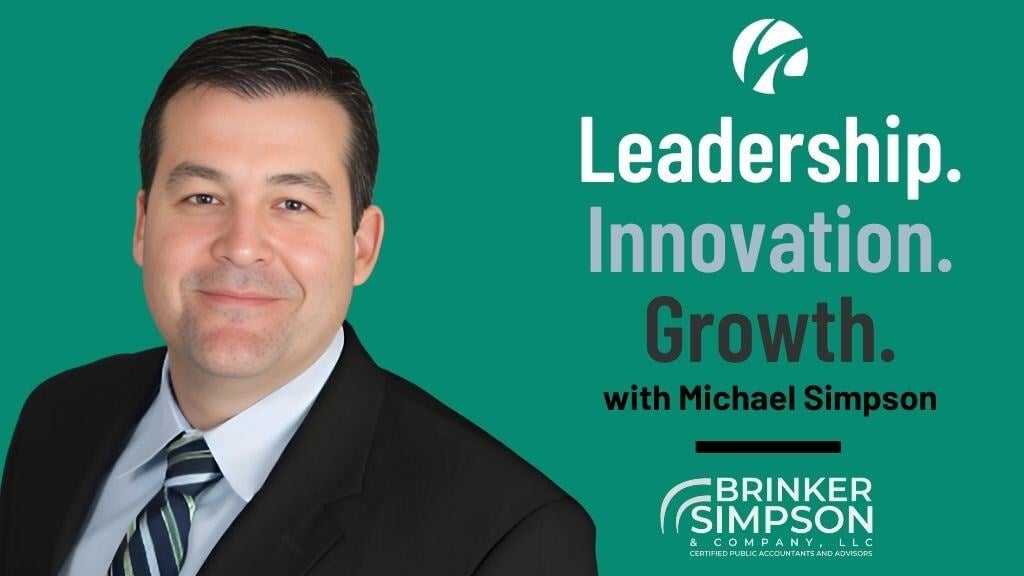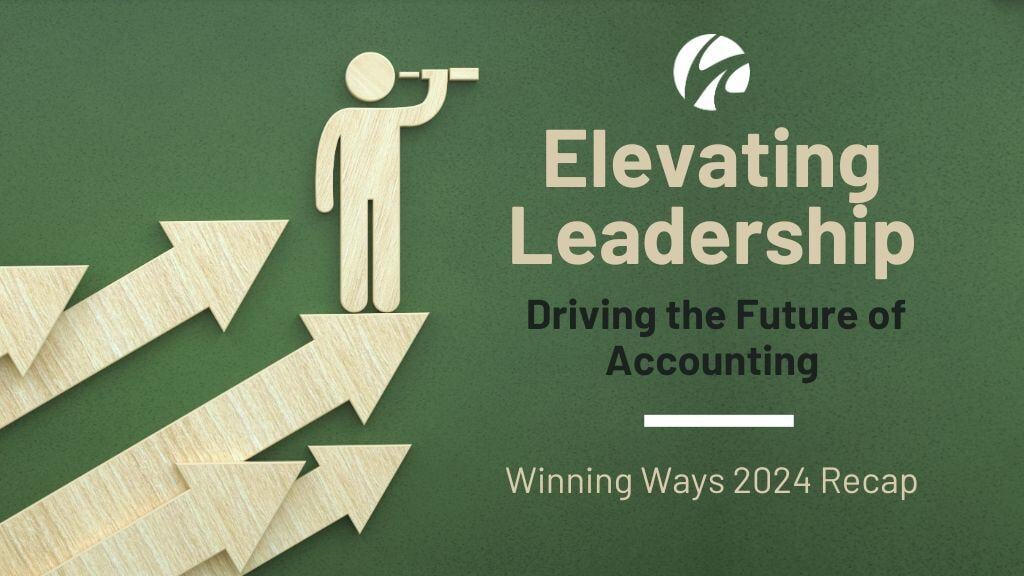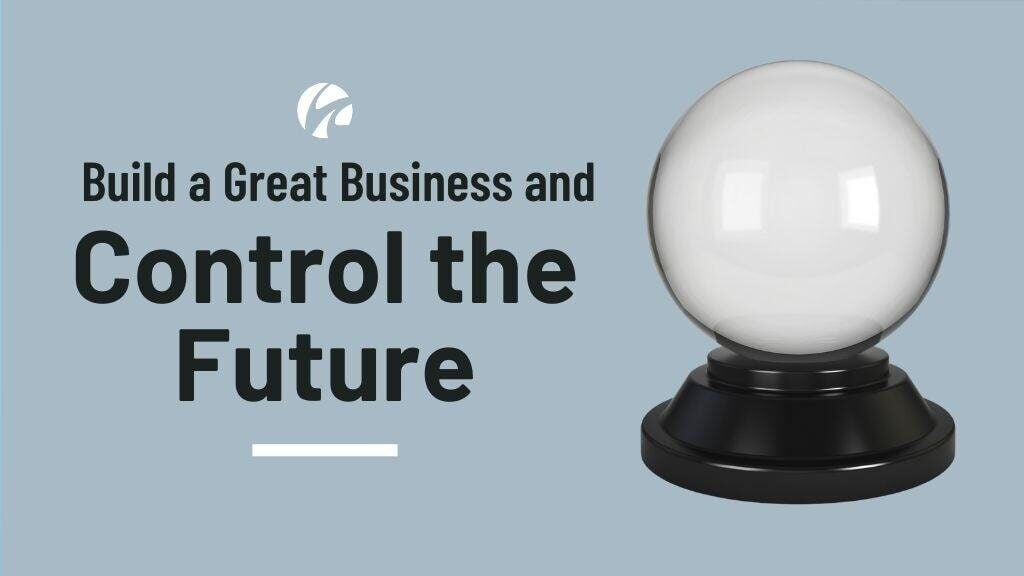3 min read
Michael Simpson on Leadership, Innovation, and Growth at Brinker Simpson
In this episode of Making Waves, host David Toth connects with Michael Simpson, Managing Partner of Brinker Simpson, a $14 million firm making...

David empowers firms to grow strategically by aligning innovation, insight, and execution. He leads WRC’s signature programs and advises firm leaders on M&A, digital growth, and leadership development.
Table of Contents

In today's rapidly evolving workforce, Millennials, also known as Generation Y, have emerged as a dominant force, especially within accounting firms. As the largest segment of the U.S. workforce, (35% according to GoRemotely) their unique values, work ethics, and career aspirations are reshaping traditional workplace dynamics.
For firms striving to hire and retain top talent, understanding the Millennial generation is not just beneficial—it's essential. By aligning management strategies with the distinct characteristics of Millennials, firms can create an engaging and productive environment that attracts and keeps the best and brightest talent, driving long-term success and innovation.
Millennials are individuals born between the early 1980s and the mid-1990s. At the time of writing this blog, Millennials currently span the ages of 28-43. They make up the largest segment of today's workforce and bring unique characteristics and perspectives to the workplace. According to a study by Pew Research Center, Millennials have become the largest living adult generation in the U.S., surpassing Baby Boomers and making their influence in the workplace undeniable.
One key aspect of understanding Millennials is recognizing their different values. They prioritize work-life balance, personal growth, and finding purpose in their careers. Unlike previous generations, Millennials are less motivated by financial rewards and more focused on meaningful work that makes a difference.
For example, many Millennials prefer roles that offer opportunities for growth and the ability to make a positive impact. Where previous generations would say “work first, live second,” Millennials flip this on its head to “live first, work second.”
Their work ethic is also notable. Millennials crave flexibility and autonomy in their jobs. They value the ability to work remotely, have flexible schedules, and be trusted to complete their tasks without constant supervision. Firms that offer such working conditions often attract top Millennial talent and have an easier time retaining them.
When it comes to career expectations, Millennials seek growth and learning opportunities. They want regular feedback, continuous development, and a work environment that encourages collaboration and open communication. Providing clear career advancement pathways and a culture of continuous feedback can help meet these expectations.
Understanding these unique aspects of the Millennial generation can help firm leaders adapt their management strategies to better engage and retain Millennial employees. But managing and attracting this generation isn’t all sunshine and roses…
While Millennials bring many positive qualities to the workplace, managing this generation can come with its own set of challenges.
One challenge is their tendency to switch jobs frequently. Millennials are often looking for new opportunities to grow and develop, which can be tough for accounting firms that invest heavily in training new hires only to see them leave shortly after. In fact, Gallup found that 21% of Millennials have changed jobs within the past year – a rate three times higher than other generations.
Another challenge is the need for constant feedback and recognition. Millennials thrive on regular feedback and acknowledgement of their contributions. Firms that do not provide ongoing feedback may struggle to keep Millennials engaged and motivated. Implementing technology that allows for real-time feedback, like feedback apps or performance management software, can help address this need. Additionally, many firms like Marcum LLP have adopted quarterly review/goal meetings for all associates that can help address this millennial need.
The digital nature of this generation can also pose unique challenges. Millennials are accustomed to instant access to information and technology and expect the same in the workplace. Firms that are slow to adopt digital tools and embrace remote work may find it difficult to attract and retain Millennial talent. Tools like Slack, Trello, and Zoom can facilitate better communication and collaboration.
To reiterate the significance of technology to millennials, here’s a brief example. A firm we work with was recently trying to make a hire for an entry-level role and was not seeing any pick-up on their listing. They had great benefits, and desirable location, decent pay, and a culture to boot. So why weren’t they seeing any applications? It turns out, one simple change to the job description made a world of difference. The job listing was switched from an in-office position to a hybrid position, and sure enough, applications came flooding in. They found the right staff within a week.
Addressing these challenges requires a proactive and adaptive approach to management. Firms need to create a work environment that aligns with Millennial values and expectations while providing the necessary support and opportunities for growth.
To effectively engage and retain Millennial employees, accounting firms can employ several strategies:
By implementing these strategies, accounting firms can increase the engagement and retention of their Millennial employees, ultimately creating a more satisfied and productive workforce.
Creating a work environment that appeals to Millennials is essential for retaining their talent.
Millennials, often characterized by their adaptability and technological savvy, lead with a distinct approach that reflects their upbringing in a rapidly evolving digital world. Unlike previous generations, Millennials prioritize collaboration, transparency, and work-life balance.
Millennials are more likely to embrace a flat organizational structure, valuing input from all team members and fostering a culture of inclusivity and innovation. This contrasts sharply with the hierarchical and authoritative leadership style commonly associated with Baby Boomers. Millennials tend to be more purpose-driven, seeking to align their work with their values and making a positive impact on society.
The generational chasm between Baby Boomers nearing retirement and Millennials stepping into leadership roles is palpable in many organizations. Boomers, with their wealth of experience and traditional viewpoints, often find themselves at odds with the progressive and sometimes unconventional methods of Millennials. This divergence can lead to friction as established norms and practices are challenged by new perspectives.
However, this generational shift also presents an opportunity for growth and evolution. By bridging this gap through mutual understanding and respect, organizations can harness the strengths of both generations, ensuring a smoother transition and a more dynamic, resilient future.
Combining the strengths of different generations can lead to increased innovation, collaboration, and creativity. Each generation brings unique perspectives and experiences, which can result in more well-rounded solutions and approaches to challenges. For example, combining the technological savvy of Millennials with the experience and industry knowledge of Baby Boomers can enhance problem-solving and innovation.
A multigenerational workforce also promotes knowledge sharing and mentorship. Older generations can offer valuable insights and guidance, while younger generations can bring fresh ideas and technological expertise. Creating mentorship programs that pair employees from different generations can foster a culture of learning and growth.
To fully embrace the benefits of a multigenerational workforce, firms can encourage cross-generational collaboration, create mentorship programs, and foster a culture of learning and respect. Recognizing and celebrating the contributions of all generations can create a more cohesive and productive work environment.
By leveraging the strengths of each generation, accounting firms can create a dynamic and inclusive work environment that benefits both employees and the firm as a whole.
Is your firm struggling to navigate its cultural challenges? Let’s chat!

3 min read
In this episode of Making Waves, host David Toth connects with Michael Simpson, Managing Partner of Brinker Simpson, a $14 million firm making...

3 min read
110 attendees come together in Chicago for the 3rd Annual Winning Ways Conference In the heart of a rapidly changing profession, where firms must...

2 min read
Every firm has three options today: merge up, sell to PE, or stay independent. The firms in control of these options are the ones building a great...